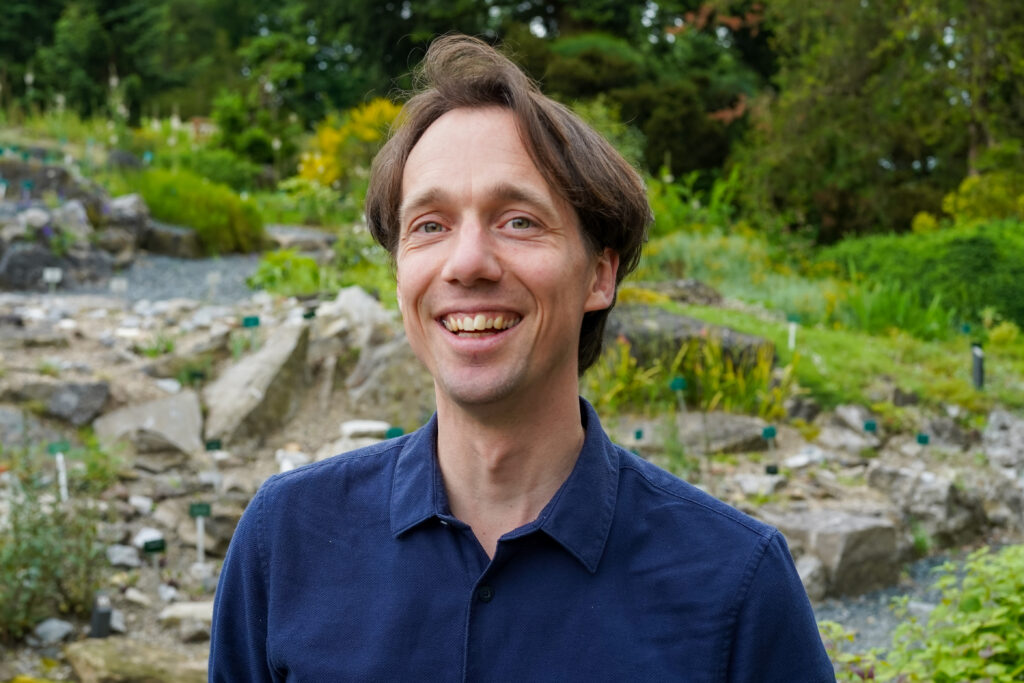It is exciting to be involved in the development of new technologies at an early stage.
In this series, we introduce you to the people behind CropXR. Who are they, what do they do, and why are they passionate about their work for CropXR?

Name: Koen Beumer
What is your professional role within CropXR?
I am the work package leader of WP-C7 on innovation dynamics and societal impact. Furthermore, I am also involved in the Scientific Advisory Committee, CropXR Education and CropXR Agro.
Can you describe this role a nutshell?
I coordinate the work package on the innovation dynamics and societal implications of smart breeding. Together with Ellen Moors, I lead a wonderful team of social scientists and philosophers who investigate ‘societal’ implications of smart breeding. This includes studies to identify systemic barriers to the use of Artificial Intelligence in plant breeding. Other studies aim to understand the implications of accessing genetic resources. What are the effects of sharing the benefits that derive from their use? Furthermore, there is research on societal needs and concerns. How can plant scientists and data scientists become more responsive to societal needs and concerns? In addition, we conduct research that questions the very notion of resilience that lies at the heart of CropXR. In practice, we provide a stimulating and supportive environment for all this research. Moreover, we coordinate the connections with other work packages and all stakeholders involved.
What is the main challenge you face?
Interdisciplinary research always comes with the challenge of gaining sufficient mutual understanding among people with varying backgrounds who speak different scientific languages and have various thinking styles. This is no different when trying to build bridges between plant sciences, data sciences, and social sciences.
We are currently developing a new minor for Wageningen University & Research that is at the interface of plant sciences, data sciences, and social sciences. I hope the development of this minor can also contribute to mutual understanding and integration. Hopefully, this understanding will occur among the minor development team, among CropXR at large, and among the new generation of students who will follow the minor.
What do you personally hope to achieve within CropXR in the next (10) years?
I hope we will have contributed to the successful development of extra resilient crops, in a way that is societally responsible and responsive to societal needs and concerns. Beyond that, in 10 years, I hope we can draw lessons from CropXR. These can be valuable for other projects that aim to develop societally responsible innovations with a variety of disciplines and stakeholders.

